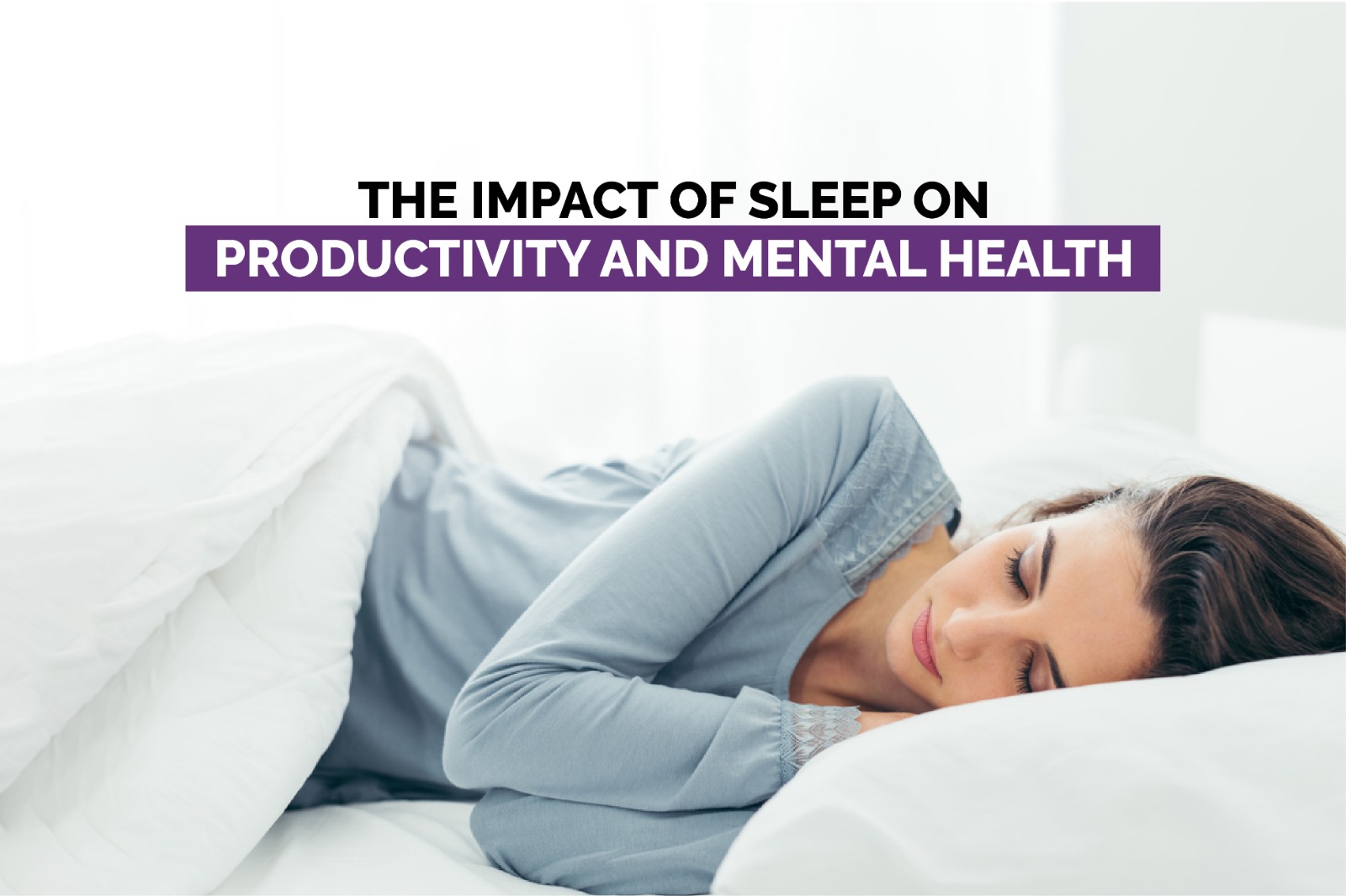In today’s fast-paced and demanding world, where productivity and mental health are closely intertwined, the quality and quantity of sleep have emerged as crucial factors that significantly influence our overall well-being. Adequate sleep not only contributes to physical health but also plays a vital role in promoting productivity and nurturing mental health. Let us delve into the profound impact of sleep on productivity and mental health, exploring the scientific evidence and practical strategies to improve both.
The Connection Between Sleep and Productivity
Productivity is the ability to efficiently complete tasks, achieve goals, and stay focused throughout the day. Numerous studies have highlighted the strong correlation between sleep and productivity. When individuals consistently experience restful and sufficient sleep, they are more likely to exhibit enhanced cognitive functions, improved memory retention, and increased creativity.
On the other hand, sleep deprivation can lead to reduced concentration, slower decision-making, and impaired problem-solving skills. Moreover, lack of sleep can negatively impact one’s attention span, leading to decreased work efficiency and overall productivity.
The Role of Sleep in Mental Health
Sleep and mental health share a bidirectional relationship, with each significantly influencing the other. Sound sleep is essential for emotional regulation, stress management, and mood stability. During deep sleep stages, the brain processes emotions and consolidates memories, enabling individuals to cope with daily stressors more effectively.
Conversely, individuals grappling with mental health issues such as anxiety, depression, or chronic stress often experience disrupted sleep patterns. Persistent sleep disturbances can exacerbate these conditions, leading to a vicious cycle of sleep deprivation and deteriorating mental health.
Understanding the Sleep-Wake Cycle
To comprehend the connection between sleep, productivity, and mental health, it is vital to understand the sleep-wake cycle, also known as the circadian rhythm. Our bodies are naturally attuned to follow a 24-hour cycle, which regulates various physiological processes, including sleep-wake patterns. The circadian rhythm is influenced by external factors such as sunlight, temperature, and social cues.
Disruptions to this natural cycle, such as irregular work hours, jet lag, or excessive exposure to artificial light at night, can lead to sleep disturbances and negatively impact both productivity and mental health.
The Biological Impact of Sleep on the Brain
During sleep, the brain undergoes essential processes that facilitate its proper functioning. Sleep allows the brain to clear out metabolic waste and toxins that accumulate during wakefulness, a process known as the glymphatic system. This clearing process is crucial for maintaining cognitive function and preventing neurological disorders.
Moreover, sleep plays a critical role in memory consolidation, where the brain processes and stores information acquired during the day. Adequate sleep is essential for improving memory recall and retaining new knowledge, ultimately enhancing productivity in various tasks.
Sleep, Productivity, and the Workplace
The significance of sleep in the workplace cannot be overstated. Many organizations are now recognizing the importance of fostering a sleep-friendly culture to improve productivity and overall employee well-being. Sleep-deprived employees are more likely to experience absenteeism, reduced creativity, and lower job satisfaction.
To enhance productivity, employers can implement strategies such as flexible work schedules, creating designated rest areas, and promoting wellness programs that emphasize the importance of sleep. Moreover, educating employees about sleep hygiene and offering resources to manage stress can significantly contribute to a more productive and mentally healthy workforce.
Sleep and Decision-Making Abilities
Quality sleep plays a pivotal role in decision-making abilities. Sleep deprivation can impair judgment, leading to hasty and less accurate decisions. In contrast, well-rested individuals demonstrate better decision-making skills, analyze information more effectively, and consider alternative solutions before reaching conclusions.
Sleep-Deprivation and Cognitive Decline
Long-term sleep deprivation can have severe consequences for cognitive function and brain health. Chronic sleep disturbances have been linked to an increased risk of cognitive decline and neurodegenerative diseases such as Alzheimer’s and dementia. Consistently obtaining the recommended amount of sleep can potentially help in reducing the risk of these conditions, safeguarding both productivity and mental health in the long run.
Practical Strategies for Improving Sleep
Fortunately, there are several practical strategies that individuals can adopt to improve their sleep quality and, consequently, their productivity and mental health:
- Establish a Consistent Sleep Schedule: Try to go to bed and wake up at the same time every day, even on weekends, to regulate your circadian rhythm.
- Create a Relaxing Bedtime Routine: Engage in calming activities before bedtime, such as reading, meditation, or taking a warm bath, to signal your body that it is time to wind down.
- Limit Screen Time Before Bed: The blue light emitted by electronic devices can disrupt melatonin production, making it harder to fall asleep. Aim to reduce screen time at least an hour before bedtime.
- Create a Comfortable Sleep Environment: Invest in a comfortable mattress and pillows and keep your bedroom cool, dark, and quiet to optimize sleep conditions.
- Watch Your Diet: Avoid heavy meals and caffeine close to bedtime, as they can interfere with sleep quality.
- Exercise Regularly: Engaging in physical activity during the day can help improve sleep quality but avoid intense workouts close to bedtime.
- Manage Stress: Practice stress-relief techniques, such as deep breathing exercises or mindfulness meditation, to ease your mind before sleep.
Enhance sleep quality with the best mattress in UAE
Sleep is an indispensable pillar of our well-being, influencing both productivity and mental health in profound ways. By prioritizing healthy sleep habits and fostering a sleep-supportive environment, individuals can unlock their full potential and lead more fulfilling lives both at work and in their personal pursuits. Our sleep experts at Restonic have understood the importance of a quality sleep and has designed the perfect mattress that suits each individual preferences and health issues. Whether you are looking for the latest technology spring mattress or an organic mattress that is eco-friendly, we have the right solution. Find a solution to your sleep problems by talking to our sleep experts.













